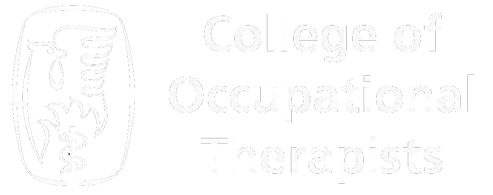
DCD/Dyspraxia Report
A Developmental Co-ordination Disorder (DCD) / Dyspraxia report would offer an overview of the Dyspraxia assessment completed by the Occupational therapist. You may wish to use the DCD / Dyspraxia report as a second opinion, or to provide more information for teachers, or just for your own reference. The purpose of this report is decided by you, it is written by each therapist following an assessment, and is therefore a personalised reflection based on how dyspraxia is affecting your child. The report would contain a summary of:
How Dyspraxia or DCD is impacting upon the daily level of independent function for your child
Dyspraxia is a condition which primarily affects movement. The difficulties identified with how your child moves during the assessment in relation to activities he / she may complete at home, or in school will be presented in this section. For example, the child may be finding it hard to balance on one leg during P.E lessons when all the other children can, or may struggle to throw or catch objects at the same level as their peers. The occupational therapist will outline the most influential difficulties that impact upon learning, and offer any advice and recommendations to improve the difficulties associated with DCD or Dyspraxia.
Educational recommendations within school for a child with DCD or Dyspraxia
The DCD / Dyspraxia report would also contain any recommendations for schools on how to improve the learning experience of your child within the school environment. The DCD / Dsypraxia report could contain education on dyspraxia, or DCD, and how this can affect concentration, attention, movements, balance and ability to function at a level similar of their peers. Education is a vital stage of achieving progress, through understanding of the condition can the learning environment be adapted and graded to improve and appreciate how a child with dyspraxia or DCD learns compared to other children.
Problem identification and Goal setting for a child with DCD or Dyspraxia
The DCD / Dyspraxia report would include a description of the problems identified as being the key obstacles that are influencing your child�s occupational performance. The occupational performance refers to how successful the person is at completing an occupation. For example, if your child is struggling to throw a ball, this does not show good performance in this occupation. Therapy would be used to improve areas of bad performance in occupations.
During the goal setting section of the report, the occupational therapist would outline the main long term goal and the subsequent short term goals to accompany this. An example would include being able to throw a ball into a target 3 metres away after 3 weeks of 1:1 therapy aimed at improving hand eye co-ordination, core strength, targeting and balance.
The treatment plan aimed to improve the functional performance for a child with DCD or Dyspraxia
A detailed description of the therapy action plan, including logistics, the theory and its application both at home and school environment would then be outlined, including any recommendations and treatment the therapist advises your child receives in order to address the concerns raised during assessment.
Each of our highly experienced therapists can to tailor the report to your needs, offering you the special personalised treatment to make your life easier.
If you are interested in obtaining a DCD / Dyspraxia report, or would like to know more about it, please email office@otforkids.co.uk or call us on 0330 223 0888
↑ Back to Top
 Next steps:
Next steps:Please contact one of our experienced occupational therapists today and we will gladly discuss how we can help and what services we can offer you.
- 0330 223 0888
- office@otforkids.co.uk
- 2 Hagley Rd, Salford M5 3EY [map]







 OT for Kids have been a great help in aiding my son Jake with coping with his dyspraxia both at home and in school. They came out to our house and completed the assessment at home.
OT for Kids have been a great help in aiding my son Jake with coping with his dyspraxia both at home and in school. They came out to our house and completed the assessment at home.






